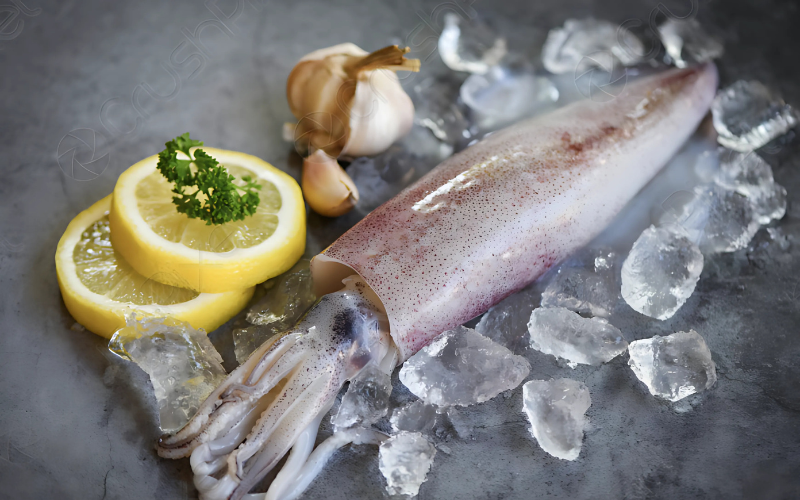In the first six months of 2025, Vietnam’s squid and octopus exports achieved positive results, reaching a total value of 335 million USD, a 16% increase compared to the same period in 2024. Of this, squid accounted for 58% with a value of 194 million USD (up 24%), while octopus made up 42% with 141 million USD (up 7%). However, these results were not consistent across all markets, clearly reflecting the opportunities, challenges, and technical barriers currently affecting export businesses.
South Korea remains the largest market, importing over 122 million USD worth of squid and octopus from Vietnam (36% of total exports), up 7% year – on – year. Popular products include cleaned cuttlefish, frozen processed octopus, and whole frozen octopus.
The CPTPP bloc also recorded strong growth of 20%, with exports reaching over 96 million USD. Japan made a significant contribution, which contributed 83 million USD in imports (up 21%). Products such as MA sushi squid, breaded fried squid, and frozen octopus are highly favoured by Japanese consumers.
China and Hong Kong combined for a total of 34 million USD, up 15% – with China alone surging by 87% in June 2025. Thailand also stood out with a 37% increase, driven by strong demand for boiled frozen octopus, dried squid, and button squid.
Conversely, some markets like Taiwan, Australia, and Hong Kong experienced declines, reflecting intense competition and certain technical and trade barriers.
Challenges Facing Enterprises
– Procedural and policy issues: Difficulties in obtaining Certificates of Origin (C/O) in accordance with Decree 31/2018/ND-CP have caused delays for many export shipments. Additionally, regulations on imported raw materials and food safety inspection procedures remain inconsistent, causing bottlenecks when converting the intended use of imported materials.
– IUU Yellow Card: The EU’s IUU yellow card continues to impact seafood exports, including squid and octopus, limiting competitiveness in this key market.
– U.S. countervailing duties and risks: The potential imposition of U.S. countervailing duties of up to 20% is a significant concern. Vague regulations regarding product origin (transshipment, 40-20-40 rules, etc.) also pose risks of high tariffs or import bans.
– U.S. MMPA regulations: The U.S. National Oceanic and Atmospheric Administration (NOAA) has not yet recognized Vietnam’s marine mammal conservation measures, including fishing methods related to squid harvesting. If Vietnam fails to meet equivalency standards, exports to the U.S. could be banned starting January 1, 2026.
Strategies for businesses amid market volatility
Vietnamese squid and octopus exporters should proactively diversify their markets with Asian countries such as South Korea, Japan, and Thailand serving as stable pillars. Enterprises should also seize opportunities in other CPTPP member markets.
Additionally, enterprises need to standardise documentation and processes, investing in quality management and raw material traceability systems to ensure transparency and meet origin requirements – especially as technical barriers tighten.
Additionally, enterprises should prepare for worst-case scenarios in the U.S. market, including the potential imposition of tariffs, by reassessing the proportion of exports to the U.S., adjusting market strategies, and revising long-term contracts if necessary.
Finally, to meet the increasingly stringent environmental and traceability requirements from the EU and U.S., enterprises must strengthen collaboration with fishermen and invest in transparent traceability systems to ensure sustainable market access.


